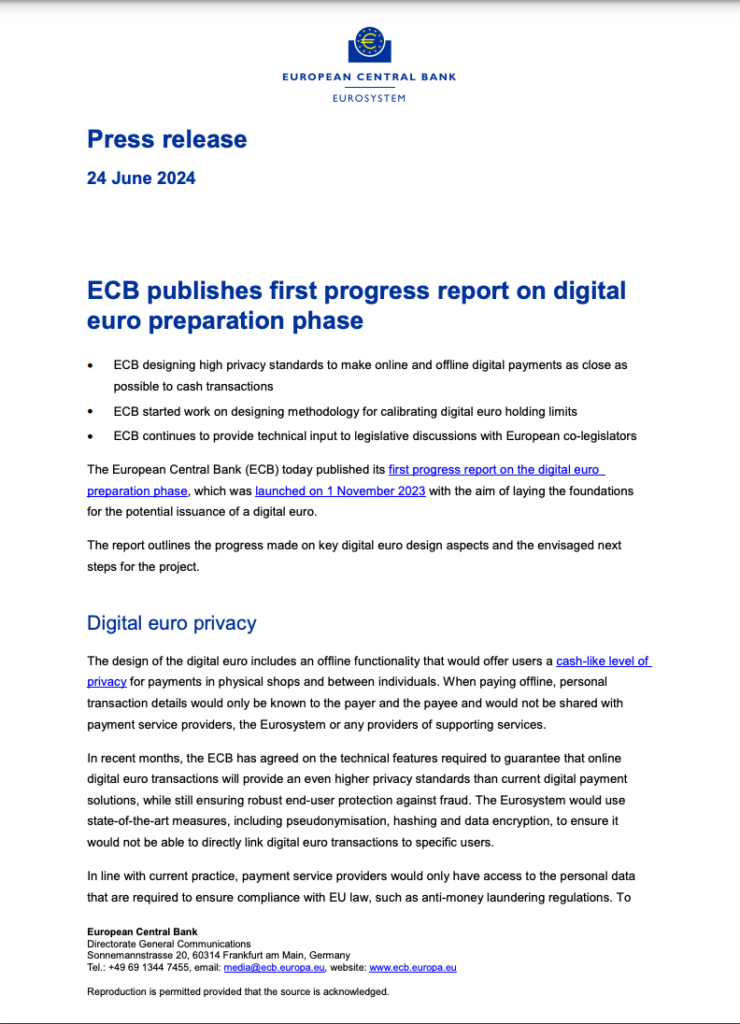The ECB’s June 24 update on CBDC development emphasizes privacy with pseudonymization, hashing, and encryption to prevent transaction tracking.

In a June 24 update, the European Central Bank (ECB) disclosed its initial progress report on the development of a central bank digital currency (CBDC).
The ECB prioritized privacy provisions, pledging to implement pseudonymization, hashing functions, and encryption features as safeguards against transaction-based surveillance of individuals.
In addition, payment service providers are prohibited from utilizing consumer financial data for commercial purposes under the ECB’s CBDC framework unless they have obtained explicit consent from the individual who generated the data.
The methods for undertaking offline transactions were also delineated. The update briefly discussed the provision of support for offline transactions between parties without the necessity of a third-party intermediary.
These payments would be resolved directly on the payment devices used by users on smartphones and yet-to-be “smart cards” that may be battery-powered or rely on bridging relays to synchronize transactions with the CBDC blockchain.

The report concluded by establishing a time frame for the technical and regulatory CBDC framework’s initial draft to be finalized by the newly formed “Rulebook Development Group.” The ECB has stated that the Rulebook Development Group will submit its ultimate first draft by the end of 2024, following consultations with the general public, infrastructure builders, and service providers.
The crypto community’s anti-CBDC sentiment is on the rise, and privacy concerns and fundamental human liberty remain the primary concerns regarding the pervasive use of central bank digital currencies.
At the Oslo Freedom Forum that took place recently, presenters and attendees examined numerous instances in which state actors unlawfully confiscated the assets of individuals in order to suppress dissent. These examples were intended to serve as a mere glimpse of the government’s overreach and control that government-controlled blockchain currencies present.
73% of respondents expressed unease with the privacy issues posed by a CBDC and the unparalleled control it would grant governments to control consumer behavior, according to a 2023 report from Trezor.
Critics contend that the advantages of a CBDC are significantly outweighed by these risks when stablecoins are taken into account. This raises concerns regarding the redundancy of central bank digital fiat and the broader issues associated with the adoption of CBDCs.
The opposition to CBDCs is being spearheaded by U.S. lawmakers and legislators. Former President Trump has pledged to obstruct the implementation of a CBDC in the United States, a stance that has become increasingly partisan.
The “CBDC Anti-Surveillance State Act” was passed by the U.S. House of Representatives in May. This legislation underscores the severe threats to liberty in open societies that centrally controlled digital money poses.
